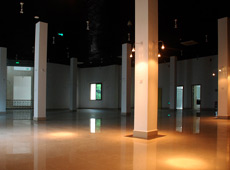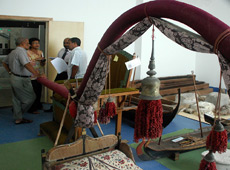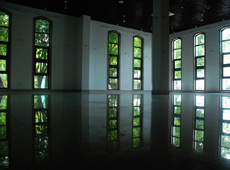Recent political developments not only confirm that democracy certainly is not ‘the only game in town’ – which is the simple test of consolidated democracy according to political scientists Alfred Stepan and Juan Linz – but also make one doubt whether there has been a completed democratic transition in the Maldives.
Two issues – the increasing inability of the government to generate new policies, and the de jure and de facto sharing and blurring of the powers of the executive with those of the legislature – put into question the transition to democracy.
‘Cash for votes’ in the parliament, the failures of the judiciary, reaction from government to predatory politics, the inaction of the civil society, the unreflective ‘political society’ polarized between two violent tribes, show that games from the authoritarian era can still be the favourites in town.
Failure of institutions VS human failure
Sri Lanka’s foreign minister, who is also trained in law, recently argued that the reasons for the current impasse lie in the institutional design of the 2008 constitution. President Nasheed agreed at a press conference on Wednesday. The unique features of presidentialism are also the institutional reasons for similar political deadlock as argued by others like Linz.
Yet institutionalism is not a sufficient reason – for either evil or good.
For, even perfect or just constitutions may not result in good outcomes or realisations.
As Nobel laureate Amartya Sen powerfully argues in his recent book The Idea of Justice the compliance of people’s behaviour with the demands of institutions is necessary for comprehensive good outcomes.
Wealthy parliamentarians can buy votes, minority parties can filibuster and disrupt parliament’s work, parliamentarians can block legislation and misuse constitutional provisions, authorities can arbitrarily arrest people and bypass due process, judges can be biased, executive can ignore court orders, and oversight bodies can be power-ridden.
To avoid, therefore, ‘justice in the world of fish’ where powerful predators devour the rest, both institutions and behavioral compliance, both processes and substance, are essential.
The persistence of predatory culture
Recent revelations show that predatory practices in the country are shockingly persistent. If what Larry Diamond, who has extensively written on political transitions, describes as ‘predatory society’ is an ideal type, the Maldives may not be far away from it. He describes, and I quote in length from Civic Communities and Predatory Societies:
In the predatory society, people do not get rich through productive activity and honest risk-taking. They get rich by manipulating power and privilege, by stealing from the state, exploiting the weak, and shirking the law.
Political actors in the predatory society will use any means and break any rules in the quest for power and wealth. Politicians in the predatory society bribe electoral officials, beat up opposition campaigners, and assassinate opposing candidates. Presidents silence criticism and eliminate their opponents by legal manipulation, arrest, or murder. Ministers worry first about the rents they can collect and only second about whether the equipment they are purchasing or the contract they are signing has any value for the public.
Legislators collect bribes to vote for bills.
Military officers order weapons on the basis of how large the kickback will be. Ordinary soldiers and policemen extort rather than defend the public. In the predatory society, the line between the police and the criminals is a thin one, and may not exist at all. In fact, in the predatory society, institutions are a façade. The police do not enforce the law.
Judges do not decide the law.
Customs officials do not inspect the goods. Manufacturers do not produce, bankers do not invest, borrowers do not repay, and contracts do not get enforced. Any actor with discretionary power is a rent-seeker. Every transaction is twisted to immediate advantage. Time horizons are extremely short because no one has any confidence in the collectivity and its future. This is pure opportunism: get what you can now. Government is not a public enterprise but a criminal conspiracy, and organized crime heavily penetrates politics and government.
Again, he says that “Corruption is the core phenomenon of the predatory state.”
The problem with such a society is that it cannot sustain democracy.
How to leave Las Vegas
President Nasheed’s government no doubt represents a victory against the forces of predation. However, some reasonable people have questioned whether his government’s recent reaction to predatory politics was legitimately conducted.
Of course, as value-pluralists like Isaiah Berlin remind us, we may take the risk of drastic action in desperate situations. So to give the government the benefit of the doubt, legitimacy aside, it is questionable if the government’s actions such as arrests and fomenting masses will lead to improvement.
Writing about political deadlocks, political scientist Scott Mainwaring has this to say:
“Common among populist presidents, such a pattern [i.e. mobilizing masses] easily leads to escalating mutual suspicions and hostilities between the president and the opposition.”
Moreover, by detaining otherwise predatory characters on questional grounds, we are giving them the benefit of victimhood and making them ever strong and popular. There is no greater tragedy to responsible opposition politics than having predatory characters as the most popular.
To my mind, therefore, there is no alternative to talks as an immediate measure, and strengthening institutions of horizontal accountability such as the Anti-Corruption Commission, the Audit Office, and the judiciary for long haul.
As a discursive yet instrumental tool, government must strengthen its public communication and pressure the parliament into compliance through public sphere.
As a permanent policy, it is time the government took for granted that it is a minority in the parliament, gave way for real negotiations rather than consultations, and got prepared for painful compromises.
Politics after all is the art of the possible.
All comment pieces are the sole view of the author and do not reflect the editorial policy of Minivan News. If you would like to write an opinion piece, please send proposals to [email protected]


